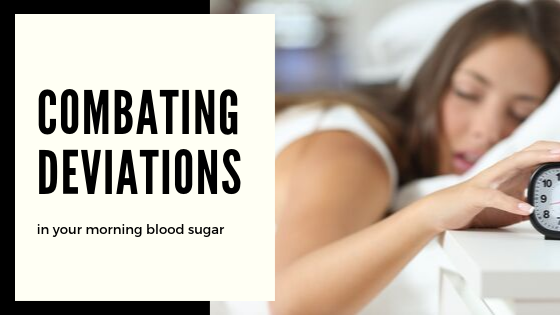
No matter how well you control your diabetes everyone has problems from time to time. One of the most common diabetes complicates is deviations in morning blood sugar. These highs or lows can cause problems throughout the day and can be caused by medications, changes in diet, exercise, or hormone levels.
Low Morning Blood Sugar
The main cause of low morning blood sugar levels (also known as hypoglycemia) in diabetic patients is an excess of background or long-acting insulin. Blood sugar levels are considered low if they dip below 70 milligrams per deciliter (mg/dL). Readings that reach 54 mg/dL and lower are cause for concern and immediate medical treatment.
Symptoms of low morning blood sugar include:
- headache
- sweating
- dry mouth
- nausea
- lightheadedness
- dizziness
- shaking
- hunger
- anxiety
- blurred vision
- pounding heartbeat
Consistently low morning blood sugar can lead to tiredness and headaches that last throughout the day. It may also reduce your awareness of low blood sugar levels which can be dangerous if those levels drop into the severe range.
If you’re experiencing low morning blood sugar levels, your first step is to visit with your medical provider. Your provider may want to adjust your insulin dosage or timing before bed. Other causes of low blood sugar may include drinking alcohol before bed, forgetting your regular bedtime snack or changing what you eat, or exercising too late in the day.
Other ways to combat low morning blood sugar include eating a bedtime snack of carbs and protein, avoiding excessive alcohol consumption, and exercising earlier in the day.
Dawn Phenomenon
On the flip side of low blood sugar levels, some diabetic patients find they wake with high blood sugar levels. Our bodies are designed to release hormones that increase blood sugar levels in the morning. This blood sugar ensures we have the energy we need to wake up and get started on our day. Bodies without diabetes release insulin to manage the excess blood sugar. Diabetic patients don’t respond to insulin the say way so you may wake up with high blood sugar.
Dawn Phenomenon may not be the only reason you’re experiencing high blood sugar levels. Other causes may include not taking enough insulin the night before, other medications, or a change in your bedtime snack.
If your blood sugar levels are high for several mornings in a row check it during the night between 2-3 a.m. and take those numbers to your medical provider. They can help you determine if the Dawn Phenomenon is the problem and how to treat it.
Somogyi effect
The other cause of high morning is the Somogyi effect. This usually has more to do with diabetes management rather than naturally occurring hormone changes like in the Dawn Phenomenon. The Somogyi effect is caused by taking too much or too little insulin before bed or skipping your bedtime snack. If your blood sugar levels drop too low at night, your body may produce more glucose in an effort to prevent dangerously low blood sugars. The effect leaves you with high morning blood sugars, also called rebound hyperglycemia.
Before making changes to your diet, insulin doses, or other routines consult with your medical provider. They can help pinpoint the cause of your low or high blood sugar and work with you to formulate a solution. If you don’t have a provider who regularly helps you manage your diabetes, our providers are ready to assist you with management for a healthier, happier lifestyle.


Speak Your Mind